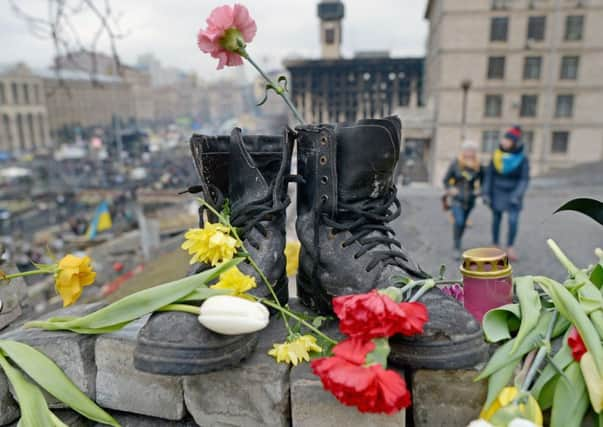Ukraine: Fears for Russian-dominated Crimea


Oleksander Turchinov summoned the “power ministries and agencies” to discuss Crimea after protests on the southern peninsula against the leaders who have taken charge in Kiev following the ousting of president Viktor Yanukovich.
The Ukrainian parliament also delayed forming a new government, reflecting political tensions and economic challenges after Russian-backed Mr Yanukovich went into hiding.
Advertisement
Hide AdAdvertisement
Hide AdA Russian-speaking mayor has been appointed in Sevastopol, the Crimean port city where Russia’s Black Sea fleet is based, and Russian speakers have staged rallies in the region to show hostility to the new authorities in the national capital.
“During the meeting, we discussed the question of not allowing any signs of separatism and threats to Ukraine’s territorial integrity [meaning the events which have taken place in Crimea] and punishing people guilty of this,” Mr Turchinov’s office said in a written statement.
Some people in Crimea call openly for moves to secede from Ukraine. The peninsula used to be Russian territory but was transferred in 1954 to Ukraine, which like Russia was then part of the Soviet Union. Most of Crimea’s population speak Russian and the region has close ties with Russia. Some Russian speakers have started forming militias in a show of strength that underlines their dissatisfaction with the political changes in Kiev.
Urging Russia not to meddle in Crimea, Arseny Yatsenyuk, a senior parliamentarian in Kiev, said: “The situation in Sevastopol is very complicated. We appeal to our Russian partners to recognise its responsibilities.”
Russian media and officials have portrayed the new leaders in Kiev as nationalists who have seized power and have expressed concern about the situation, but Russian president Vladimir Putin and the government in Moscow have not responded to calls to intervene.
Parliament speaker Mr Turchinov, who was named Ukraine’s interim leader after Mr Yanukovich fled the capital, said that a new government should be in place tomorrow. Law enforcement agencies have issued a warrant for Mr Yanukovich’s arrest over the killing of 82 people, mainly protesters – the bloodiest violence in Ukraine’s post-Soviet history – that precipitated him fleeing the capital on Friday after signing a deal with opposition leaders to end months of violent clashes between protesters and police.
For months, thousands of people have been protesting against Mr Yanukovich’s decision to ditch an agreement for closer ties with the European Union and turn to Russia instead.
The parliament sacked some of Mr Yanukovich’s lieutenants and named their replacement, but it has yet to appoint the new premier and fill all remaining government posts. Mr Yanukovich’s whereabouts are unknown. He was last reported to have been seen in Crimea.
Advertisement
Hide AdAdvertisement
Hide AdThe European Union’s top foreign policy official urged Ukraine’s new government to work out a reform programme so that the West could consider financial aid to the country’s battered economy.
Labour peer Catherine Ashton spoke yesterday after meeting with the leaders of Ukraine’s interim authorities.
Arseniy Yatsenyuk, a key figure in the protests, suggested that Mr Yanukovich should be tried at the International Criminal Court in the The Hague
Protesters, meanwhile, removed a Soviet star from the top of the Ukrainian parliament building, the Verkhovna Rada. “The star on top of the Verkhovna Rada is no longer there,” said Oleh Tyahnybok, head of the nationalist Svoboda party, which has aided the protest movement.